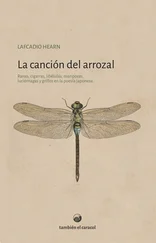Lafcadio Hearn
Published by

Books
- Advanced Digital Solutions & High-Quality eBook Formatting -
musaicumbooks@okpublishing.info
2021 OK Publishing
EAN 4064066380700
Introduction
Kwaidan
The Story of Mimi-Nashi-Hoichi
Oshidori
The Story of O-Tei
Ubazakura
Diplomacy
Of a Mirror and a Bell
Jikininki
Mujina
Rokuro-Kubi
A Dead Secret
Yuki-Onna
The Story of Aoyagi
Jiu-Roku-Zakura
The Dream of Akinosuke
Riki-Baka
Hi-Mawari
Horai
Insect Studies
Butterflies
Mosquitoes
Ants
Notes
Table of Contents
The publication of a new volume of Lafcadio Hearn's exquisite studies of Japan happens, by a delicate irony, to fall in the very month when the world is waiting with tense expectation for news of the latest exploits of Japanese battleships. Whatever the outcome of the present struggle between Russia and Japan, its significance lies in the fact that a nation of the East, equipped with Western weapons and girding itself with Western energy of will, is deliberately measuring strength against one of the great powers of the Occident. No one is wise enough to forecast the results of such a conflict upon the civilization of the world. The best one can do is to estimate, as intelligently as possible, the national characteristics of the peoples engaged, basing one's hopes and fears upon the psychology of the two races rather than upon purely political and statistical studies of the complicated questions involved in the present war. The Russian people have had literary spokesmen who for more than a generation have fascinated the European audience. The Japanese, on the other hand, have possessed no such national and universally recognized figures as Turgenieff or Tolstoy. They need an interpreter.
It may be doubted whether any oriental race has ever had an interpreter gifted with more perfect insight and sympathy than Lafcadio Hearn has brought to the translation of Japan into our occidental speech. His long residence in that country, his flexibility of mind, poetic imagination, and wonderfully pellucid style have fitted him for the most delicate of literary tasks. He has seen marvels, and he has told of them in a marvelous way. There is scarcely an aspect of contemporary Japanese life, scarcely an element in the social, political, and military questions involved in the present conflict with Russia which is not made clear in one or another of the books with which he has charmed American readers.
He characterizes Kwaidan as "stories and studies of strange things." A hundred thoughts suggested by the book might be written down, but most of them would begin and end with this fact of strangeness. To read the very names in the table of contents is like listening to a Buddhist bell, struck somewhere far away. Some of his tales are of the long ago, and yet they seem to illumine the very souls and minds of the little men who are at this hour crowding the decks of Japan's armored cruisers. But many of the stories are about women and children,—the lovely materials from which the best fairy tales of the world have been woven. They too are strange, these Japanese maidens and wives and keen-eyed, dark-haired girls and boys; they are like us and yet not like us; and the sky and the hills and the flowers are all different from ours. Yet by a magic of which Mr. Hearn, almost alone among contemporary writers, is the master, in these delicate, transparent, ghostly sketches of a world unreal to us, there is a haunting sense of spiritual reality.
In a penetrating and beautiful essay contributed to the "Atlantic Monthly" in February, 1903, by Paul Elmer More, the secret of Mr. Hearn's magic is said to lie in the fact that in his art is found "the meeting of three ways." "To the religious instinct of India—Buddhism in particular,—which history has engrafted on the aesthetic sense of Japan, Mr. Hearn brings the interpreting spirit of occidental science; and these three traditions are fused by the peculiar sympathies of his mind into one rich and novel compound,—a compound so rare as to have introduced into literature a psychological sensation unknown before." Mr. More's essay received the high praise of Mr. Hearn's recognition and gratitude, and if it were possible to reprint it here, it would provide a most suggestive introduction to these new stories of old Japan, whose substance is, as Mr. More has said, "so strangely mingled together out of the austere dreams of India and the subtle beauty of Japan and the relentless science of Europe."
March, 1904.
* * * * *
Most of the following Kwaidan, or Weird Tales, have been taken from old Japanese books,—such as the Yaso-Kidan, Bukkyo-Hyakkwa-Zensho, Kokon-Chomonshu, Tama-Sudare, and Hyaku-Monogatari. Some of the stories may have had a Chinese origin: the very remarkable "Dream of Akinosuke," for example, is certainly from a Chinese source. But the story-teller, in every case, has so recolored and reshaped his borrowing as to naturalize it... One queer tale, "Yuki-Onna," was told me by a farmer of Chofu, Nishitama-gori, in Musashi province, as a legend of his native village. Whether it has ever been written in Japanese I do not know; but the extraordinary belief which it records used certainly to exist in most parts of Japan, and in many curious forms... The incident of "Riki-Baka" was a personal experience; and I wrote it down almost exactly as it happened, changing only a family-name mentioned by the Japanese narrator.
L.H.
Tokyo, Japan, January 20th, 1904.
Table of Contents
THE STORY OF MIMI-NASHI-HOICHI
Table of Contents
More than seven hundred years ago, at Dan-no-ura, in the Straits of Shimonoseki, was fought the last battle of the long contest between the Heike, or Taira clan, and the Genji, or Minamoto clan. There the Heike perished utterly, with their women and children, and their infant emperor likewise—now remembered as Antoku Tenno. And that sea and shore have been haunted for seven hundred years... Elsewhere I told you about the strange crabs found there, called Heike crabs, which have human faces on their backs, and are said to be the spirits of the Heike warriors (1). But there are many strange things to be seen and heard along that coast. On dark nights thousands of ghostly fires hover about the beach, or flit above the waves,—pale lights which the fishermen call Oni-bi, or demon-fires; and, whenever the winds are up, a sound of great shouting comes from that sea, like a clamor of battle.
In former years the Heike were much more restless than they now are. They would rise about ships passing in the night, and try to sink them; and at all times they would watch for swimmers, to pull them down. It was in order to appease those dead that the Buddhist temple, Amidaji, was built at Akamagaseki (2). A cemetery also was made close by, near the beach; and within it were set up monuments inscribed with the names of the drowned emperor and of his great vassals; and Buddhist services were regularly performed there, on behalf of the spirits of them. After the temple had been built, and the tombs erected, the Heike gave less trouble than before; but they continued to do queer things at intervals,—proving that they had not found the perfect peace.
Some centuries ago there lived at Akamagaseki a blind man named Hoichi, who was famed for his skill in recitation and in playing upon the biwa (3). From childhood he had been trained to recite and to play; and while yet a lad he had surpassed his teachers. As a professional biwa-hoshi he became famous chiefly by his recitations of the history of the Heike and the Genji; and it is said that when he sang the song of the battle of Dan-no-ura "even the goblins (kijin) could not refrain from tears."
Читать дальше












